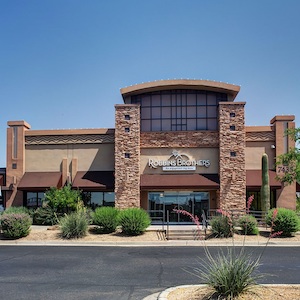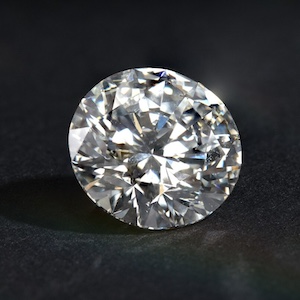
Robbins Brothers, one of the first jewelry chains to embrace lab-grown diamonds, now wants to make sure it doesn’t give natural gems the short shrift.
This marks a change for the 14-store chain, which, over the past few years, has often touted lab-growns in its communications, says Sue Hopeman, vice president of merchandising for the Azusa, Calif.-based company.
“We got into lab in 2013,” she says. “We have always been really conscious that we didn’t want it to take over the business.
“Our business model is different than other jewelers’. We sell a large gamut of consumers. We sell $1,000 diamonds, and we sell $250,000 diamonds. I think we’ve done a good job all these years of balancing our natural diamond business with our lab diamond business. I have spoken to retailers that sell 90% lab, and we are fortunate that we never went down that path.”

But the company felt natural diamonds—which tend to draw higher-end shoppers—were “getting lost in the conversation,” Hopeman says.
“People weren’t talking about natural diamonds anymore. We decided to double down. We spent an extra 25% of our open-to-buy buying natural diamonds. We retrained all of our sales associates on natural diamonds. We are putting additional advertising resources to natural diamonds,” she says.
“No one else was doing it. De Beers was talking a little bit about it, and the Natural Diamond Council was talking a little bit about it. But we felt everything was being overshadowed with lab. We wanted to step up to the plate and talk about natural diamonds.”
Hopeman notes, “The younger generation that is getting their first engagement ring has been fed a fair amount of misinformation, about lab diamonds being eco-friendly. We feel that natural diamonds do really great stuff. Look at what’s happened in Botswana. Now we spend time talking about the good that natural diamonds do.”
The ongoing drop in lab-grown prices was not a driving factor in the decision to refocus on naturals, she says.
“We have been in the lab business for 10 years and have been managing that all along. It has accelerated in the last two and half years, and we’ve known how to manage it more than new folks who just got into the business. We’re still selling more lab units than we did a year ago, but we are also selling more natural than we did a year ago. And that’s what we wanted—to maintain that balance.”

When Robbins Brothers first started selling lab-grown, sales associates would show customers a natural diamond first. Then, as the popularity of lab-grown diamonds grew, they’d present both at the same time. Now it’s back to displaying natural first, unless the customer requests a synthetic stone or is on a limited budget.
“We’re the engagement ring store,” Hopeman says. “We believe in the romance and rarity of natural diamonds. But we’ll sell you a lab if that’s what your preference is.
“We’re going to give customers the pros and cons of each and let them decide. I’m not here to tell the consumer what they want. I’m here to sell the consumer what they want.”
Top: A Robbins Brothers store in Scottsdale, Ariz. (photos courtesy of Robbins Brothers)
- Subscribe to the JCK News Daily
- Subscribe to the JCK Special Report
- Follow JCK on Instagram: @jckmagazine
- Follow JCK on X: @jckmagazine
- Follow JCK on Facebook: @jckmagazine






